The world of small dog breeds is rich with intelligence, charm, and surprising cognitive abilities. Often underestimated due to their size, these diminutive companions possess a level of intelligence that rivals their larger counterparts. They are not just lap dogs; many small breeds are quick learners, adept at problem-solving, and eager to engage in complex tasks.
This article aims to shed light on the smartest small dog breeds, unveiling those tiny canines that stand out not just for their size but for their remarkable intellectual capabilities. We will delve into the fascinating world of canine intelligence, highlighting breeds that exemplify brilliance and agility of mind, all packed into a compact, lovable package. Join us as we explore and celebrate these intelligent small breeds, understanding what makes them not only adorable companions but also astute and sharp-minded allies in our daily lives.
Understanding Dog Intelligence
Dog intelligence is a multifaceted concept that goes beyond the basic ability to learn commands. It encompasses a variety of cognitive abilities and behaviors that manifest in different forms and can be influenced by both genetics and environment.
Firstly, instinctive intelligence refers to a dog's inherent abilities - skills they are born with, often specific to their breed. For example, herding dogs like the Shetland Sheepdog have a natural tendency to herd, while hunting breeds have innate tracking abilities. This type of intelligence is deeply embedded in a dog's genetic makeup and often shapes their primary functions and behaviors.
Adaptive intelligence, on the other hand, is a dog's ability to solve problems and learn from their environment. Dogs with high adaptive intelligence can navigate complex situations, learn from previous experiences, and even show a level of empathy and understanding towards their human companions.
Working and obedience intelligence is often what we think of when we consider 'trainable' breeds. This aspect of intelligence involves a dog's ability to learn and perform tasks, follow commands, and their overall trainability. Breeds with high working intelligence learn quickly and are able to perform complex tasks with ease.
The role of training and the environment in shaping a dog's intelligence is significant. While certain traits are innate, a stimulating environment, regular training, and positive reinforcement can greatly enhance a dog’s cognitive abilities. Early socialization and exposure to various stimuli play a crucial role in developing a dog’s intelligence. A dog raised in an enriched environment with plenty of learning opportunities will typically demonstrate a higher level of intelligence and adaptability.
Understanding dog intelligence requires recognizing the different types of intelligence and the crucial role of training and environment in nurturing a dog's cognitive abilities.
Top 10 Smartest Small Dog Breeds
In the world of small dog breeds, intelligence is not measured just by size. These breeds may be small in stature, but they are giants when it comes to brainpower. From remarkable problem-solving abilities to impressive learning agility, these top 10 smartest small dog breeds showcase that intellect in dogs comes in all sizes.
1. Poodle (Miniature/Toy)

The Miniature and Toy Poodles are renowned for their exceptional intelligence and trainability. Quick learners and eager to please, these poodles excel in obedience and are known for their ability to perform tricks and tasks with ease. Their keen sense of understanding and adaptability make them excellent companions for various activities and dog sports.
2. Papillon
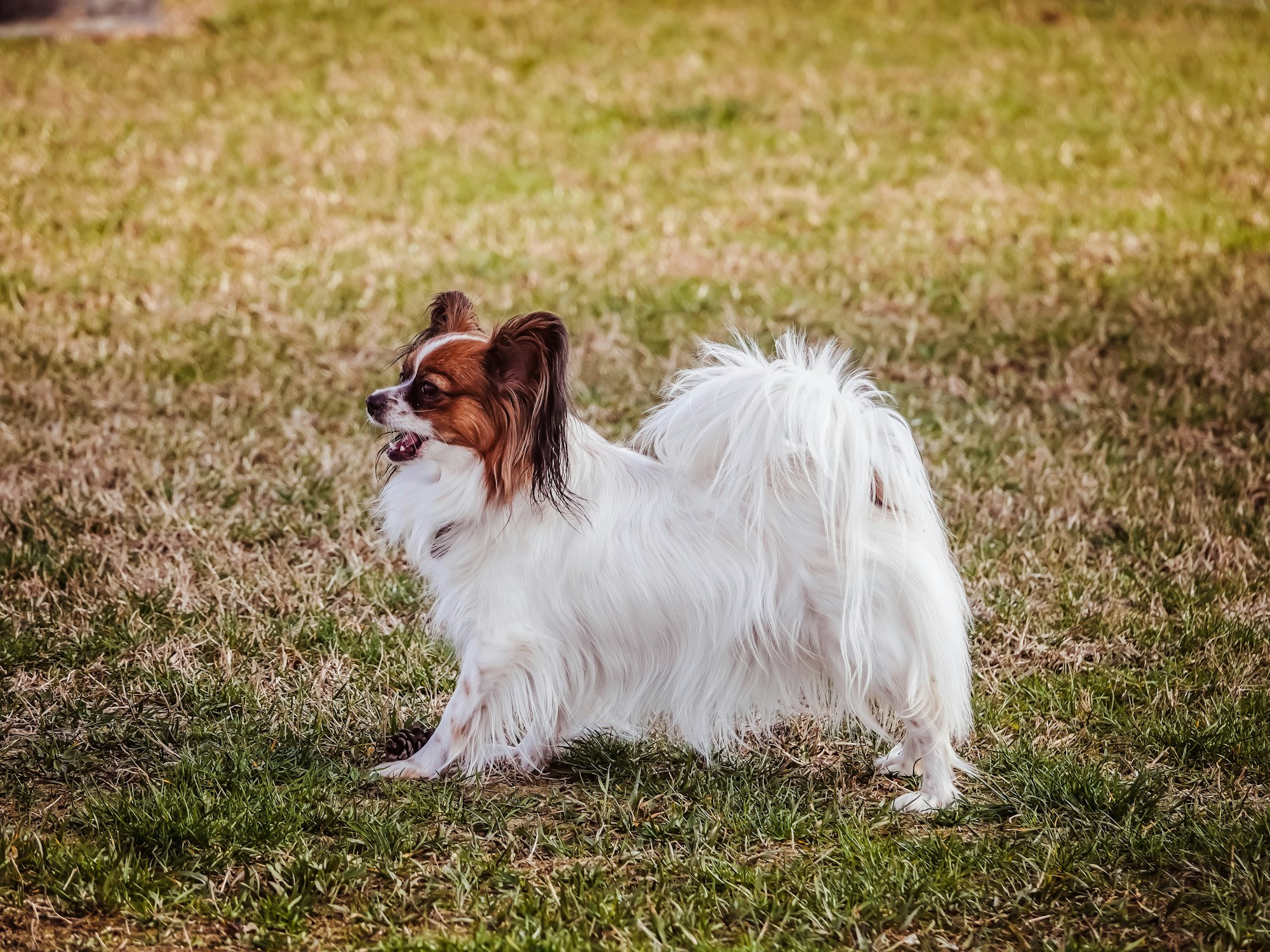
The Papillon, with its distinctive butterfly-like ears, is not just a beauty to behold but also a brainy breed. Known for their alertness and keen perception, Papillons are adept at learning new tricks and excel in agility and obedience competitions. They have a curious nature, making them quick to pick up on new cues and situations.
3. Shetland Sheepdog
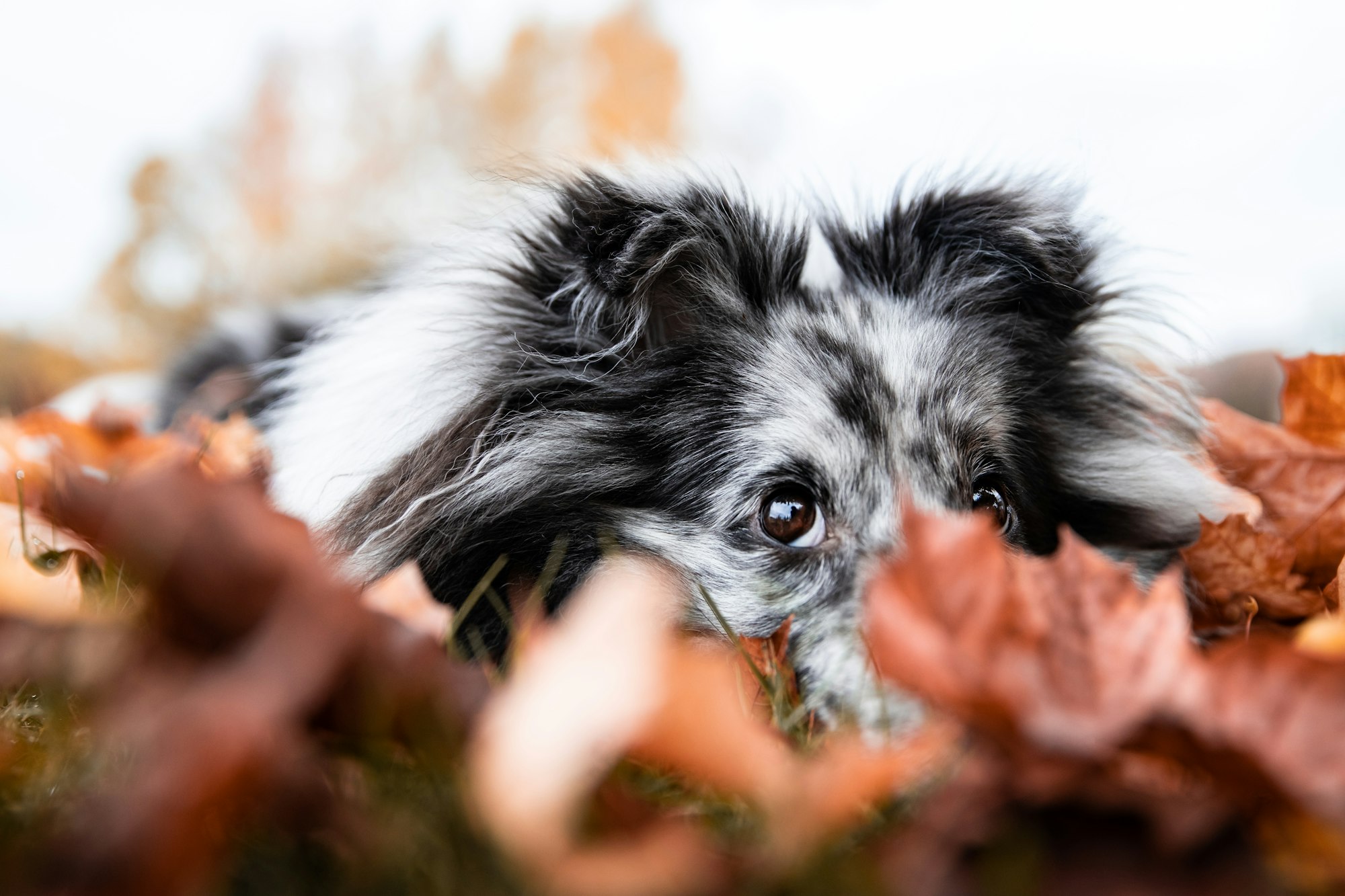
The Shetland Sheepdog, often referred to as a 'Sheltie,' is a small breed with a big brain. Originally bred for herding, they possess high levels of instinctive and working intelligence. Shelties are known for their sharp memory and ability to understand complex commands, making them standout performers in obedience trials.
4. Schipperke
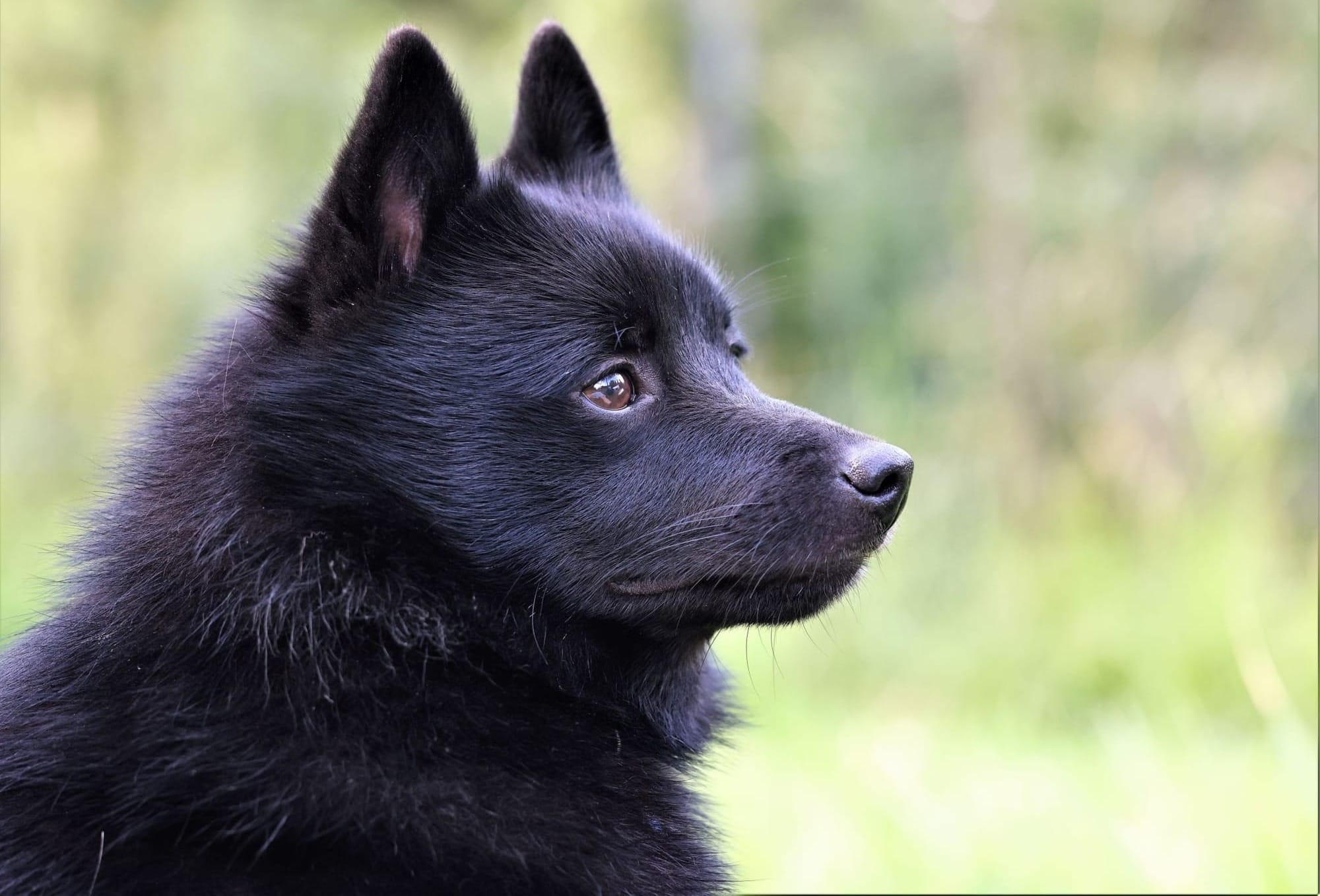
Schipperkes are small, sprightly dogs with an inquisitive and alert nature. Originally bred for hunting and guarding, they have a high degree of instinctive intelligence. They are quick to learn and respond well to training, making them suitable for various dog sports and activities.
5. Jack Russell Terrier
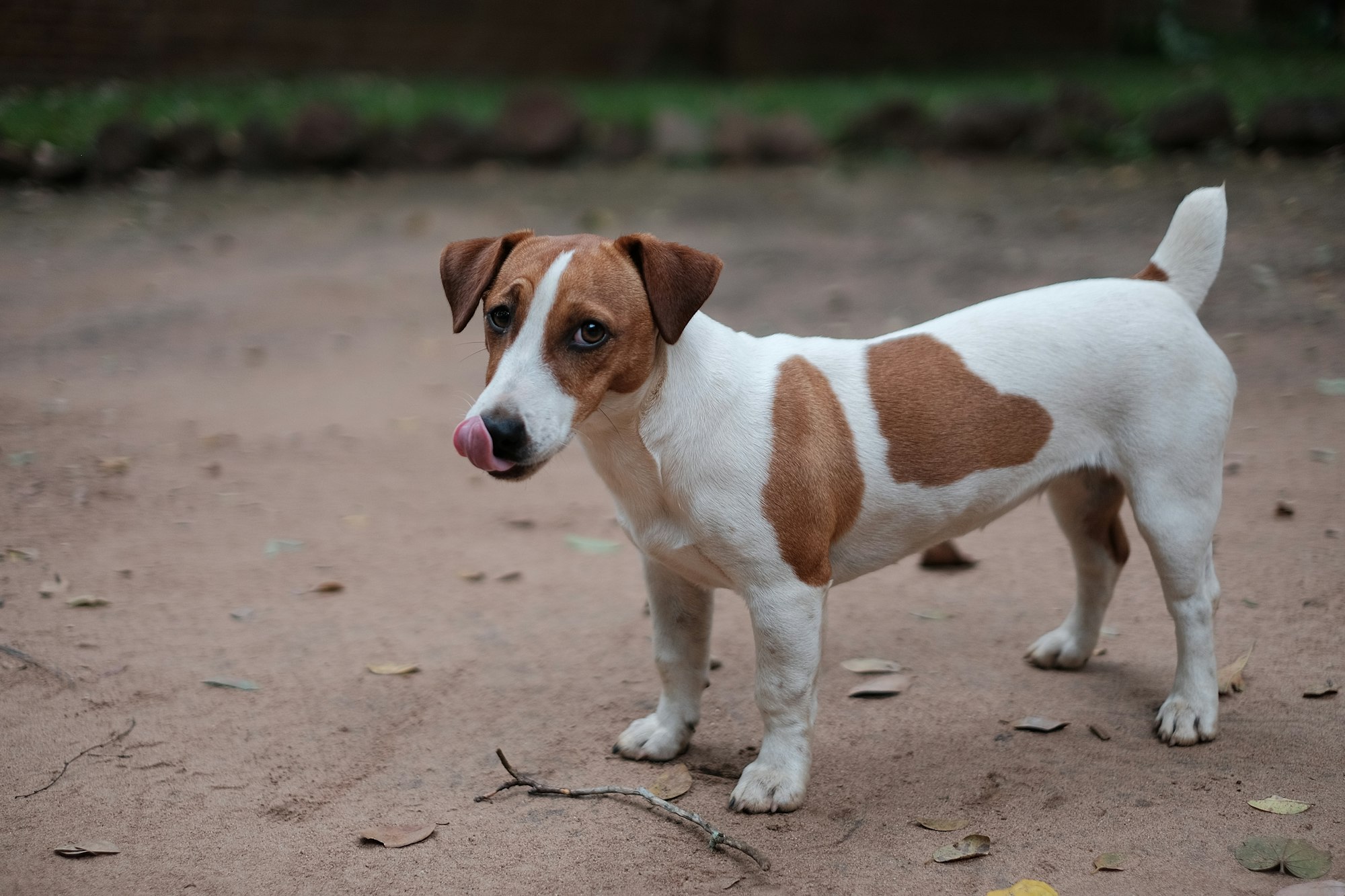
The Jack Russell Terrier is a small but mighty breed, known for its boundless energy and sharp mind. They excel in agility and problem-solving tasks, showcasing their working intelligence. Jack Russells require mental stimulation to match their physical energy, making them ideal for active owners who enjoy interactive play and training.
6. Cocker Spaniel
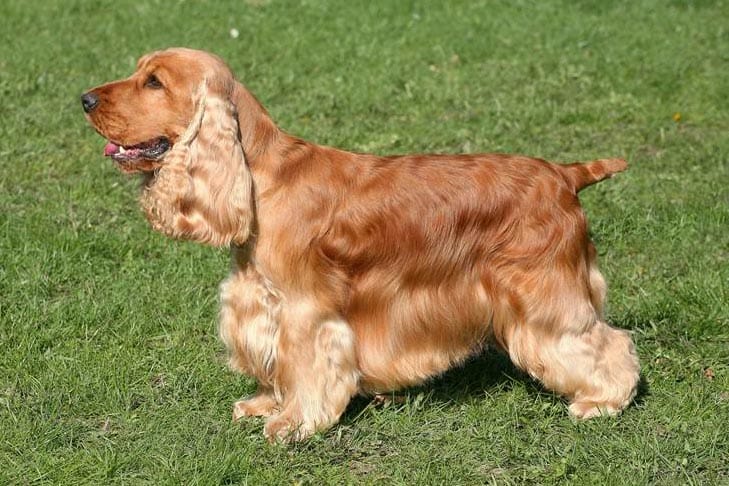
Cocker Spaniels are not only known for their gentle and affectionate nature but also for their keen intelligence. They are quick to learn and respond well to positive reinforcement, making them excellent at obedience and agility. Their attentive and eager-to-please attitude makes training a rewarding experience for both the dog and the owner.
7. Pembroke Welsh Corgi
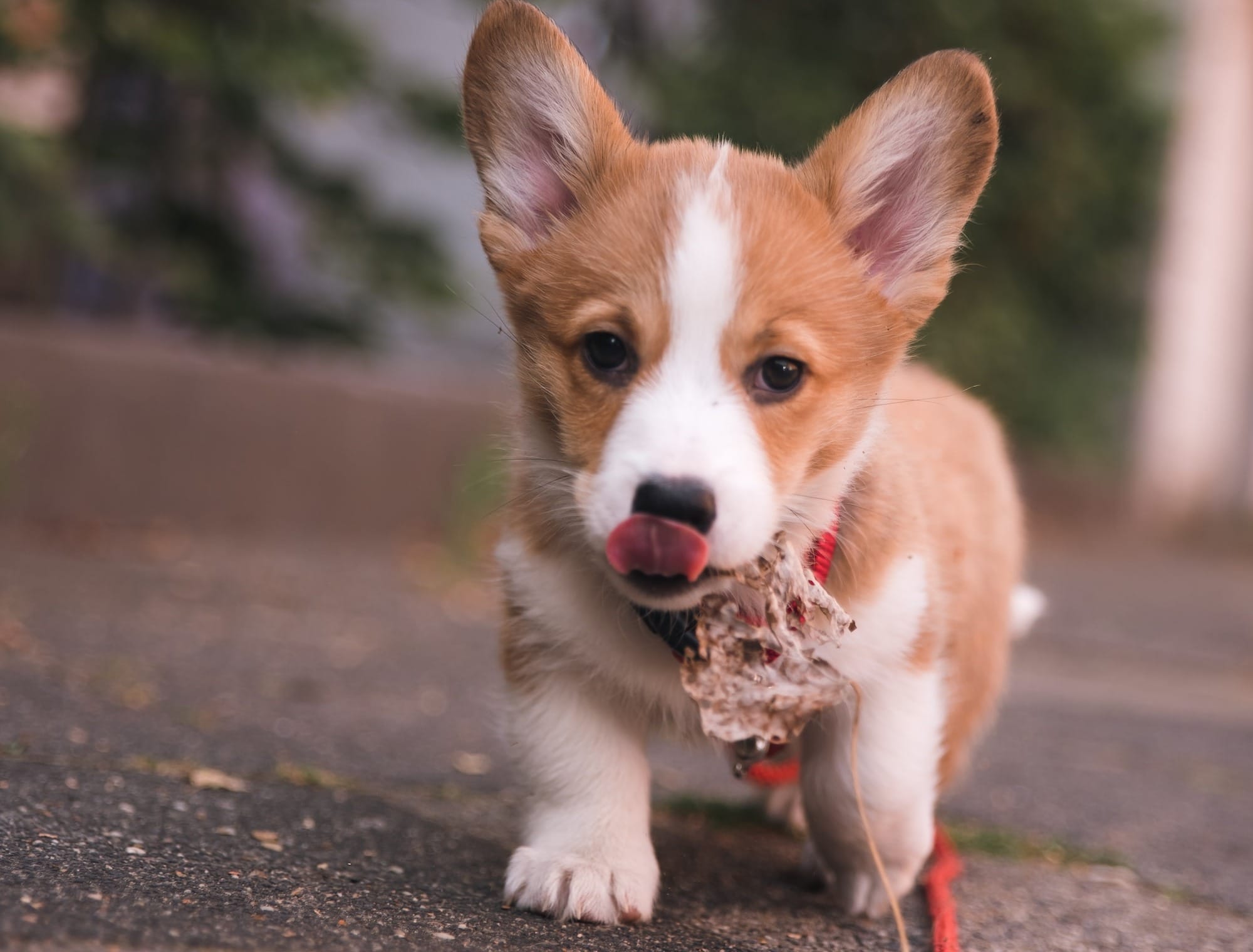
Pembroke Welsh Corgis, with their short stature and distinctive appearance, are highly intelligent and attentive dogs. Originally bred for herding, they possess a strong work ethic and are quick learners. Corgis excel in obedience and are known for their ability to perform tasks and follow commands with precision.
8. Miniature Schnauzer
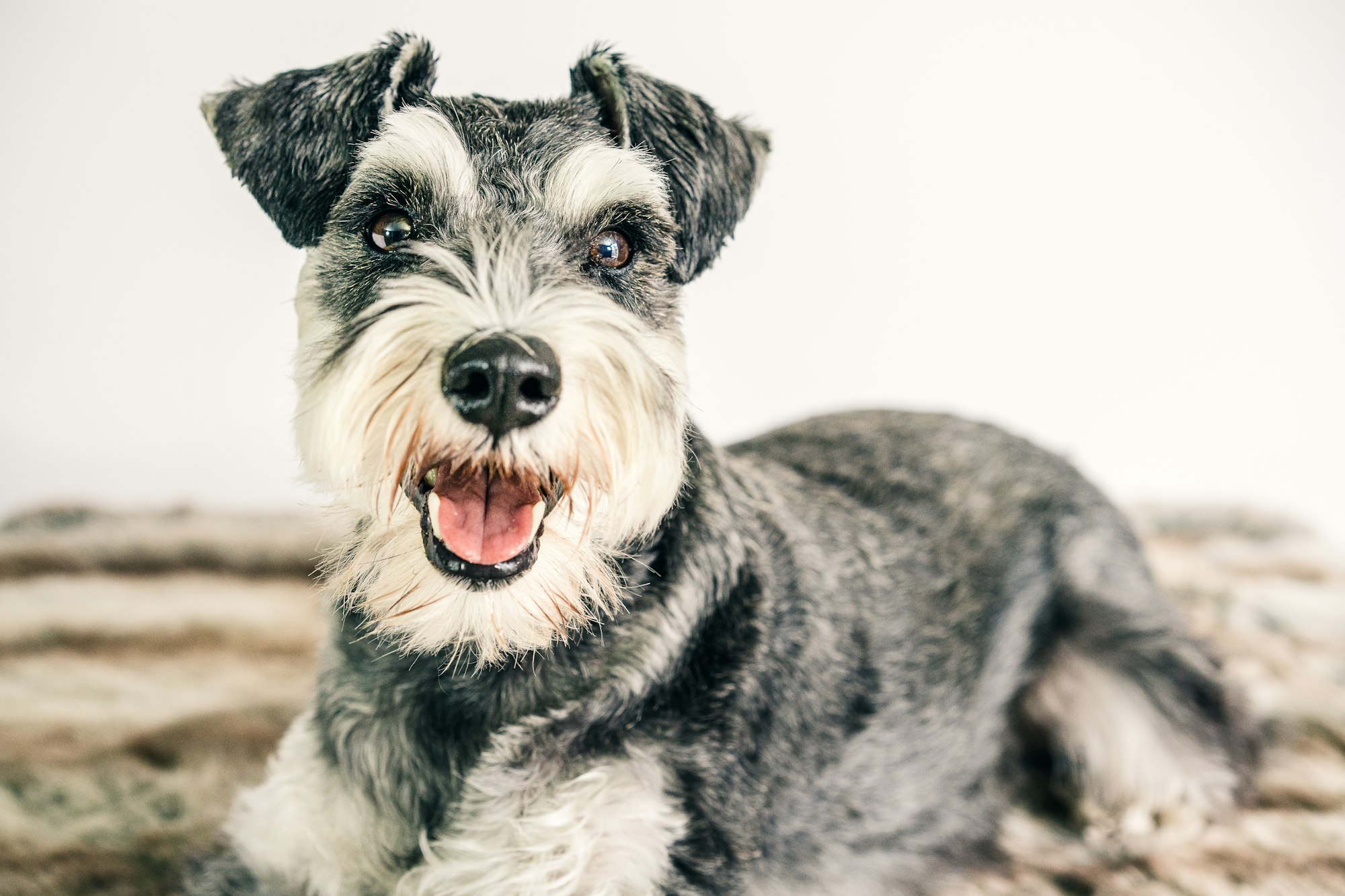
Miniature Schnauzers are known for their spirited personality and bright minds. They are eager learners and respond well to training, making them great at obedience and agility. Their alert and curious nature drives them to engage in problem-solving activities, showcasing their adaptability and intelligence.
9. Pomeranian
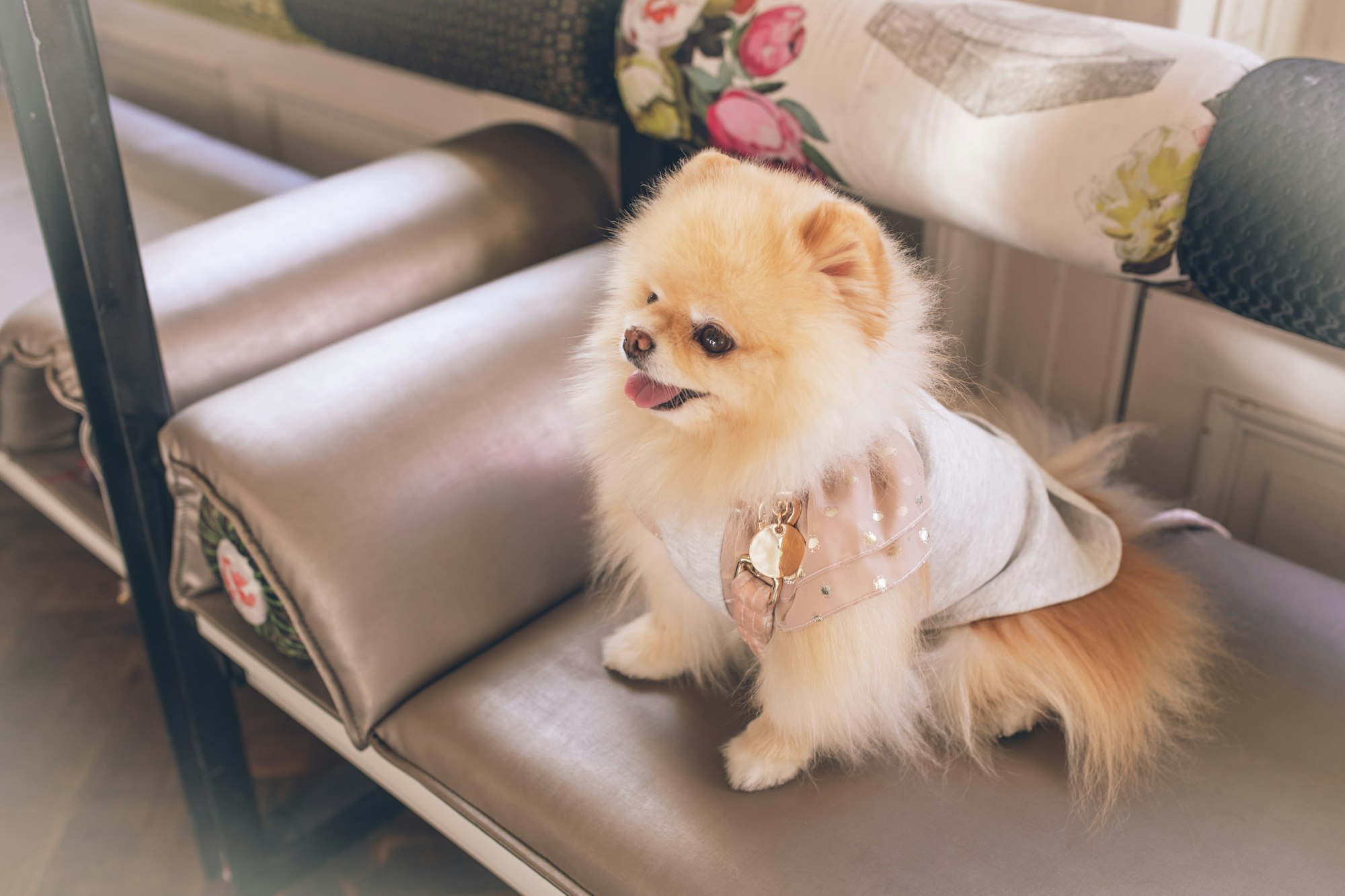
Pomeranians may be small in size, but they are big on intelligence. They are quick to understand training and are known for their alertness and responsiveness. Pomeranians enjoy learning new tricks and can excel in obedience training, making them more than just a pretty face.
10. Boston Terrier

Boston Terriers, often called 'American Gentlemen,' are not only charming but also intelligent. They have a keen ability to learn and adapt, which makes them great companions for a variety of activities. Their responsive and friendly nature makes training enjoyable and effective, as they are always keen to please their owners.
These ten breeds exemplify the incredible intelligence that small dog breeds can possess. Their keen minds, combined with their compact size, make them perfect companions for those looking for a smart, manageable pet.
Training and Mental Stimulation for Small Intelligent Dogs
Intelligent small dog breeds thrive on mental stimulation and proper training, which are essential for their overall well-being. These bright canines often possess a natural curiosity and a keenness to learn, making mental engagement as crucial as physical exercise.
Importance of Mental Stimulation and Training
Mental stimulation prevents boredom, which can lead to destructive behaviors. Training harnesses their natural intelligence in a positive way, reinforcing good behavior and enhancing the bond between the dog and owner. For smart small breeds, mental challenges are a way to channel their energy and intellect constructively.
Tips and Techniques for Training Small Intelligent Dogs
- Start Training Early: Begin training sessions when your dog is a puppy. This sets the foundation for future learning and behavior.
- Use Positive Reinforcement: Reward good behavior with treats, praise, or playtime. Intelligent dogs respond well to positive reinforcement techniques.
- Keep Training Sessions Short and Fun: Short, engaging sessions maintain their interest and prevent them from getting bored or overwhelmed.
- Be Consistent: Consistency in commands and expectations helps your dog understand and learn quicker.
Activity Ideas to Keep Them Mentally Stimulated
- Puzzle Toys: These toys challenge your dog's problem-solving skills and are great for times when they need to be entertained quietly.
- Obedience Training: Regular obedience training sharpens their skills and reinforces good behavior.
- Agility Training: This provides both physical and mental exercise, ideal for high-energy, intelligent breeds.
- Hide and Seek with Treats: Hiding treats around the house or yard encourages your dog to use their sense of smell and problem-solving skills.
- Learning New Tricks: Teach them new tricks or commands regularly to keep their brain engaged.
- Interactive Games: Games like tug-of-war, fetch, or even teaching them to sort their toys can be both fun and mentally stimulating.
Mental stimulation and proper training are vital for the health and happiness of smart small dog breeds. Engaging them with varied and enjoyable activities not only nurtures their intelligence but also strengthens the bond they share with their owners.
Behavioral Traits and Challenges
Intelligent small dogs often exhibit distinctive behavioral traits that reflect their mental prowess, but these can also present unique challenges for their owners.
Common Behavioral Traits
These dogs are usually very alert and responsive to their environment, showing a keen interest in new stimuli. Their quick learning ability often translates to a high level of responsiveness to training. However, this intelligence can also mean they get bored easily, leading to inventive ways of seeking entertainment, which might not always align with an owner's expectations.
Potential Challenges
One of the main challenges in raising a smart small dog breed is keeping them sufficiently stimulated, both mentally and physically. Without adequate stimulation, these breeds may exhibit unwanted behaviors like excessive barking, digging, or even escaping. They might also display stubbornness, especially if they are not adequately challenged or if training becomes monotonous.
Tips for Managing and Nurturing Their Intelligence
- Provide Regular Mental Stimulation: Use puzzle toys, learning games, and regular training sessions to keep their minds active.
- Establish a Routine: Consistent routines help in managing expectations and reducing anxiety-driven behaviors.
- Positive Reinforcement: Reward-based training encourages desired behaviors and enhances learning.
- Socialization: Expose them to different environments, people, and other dogs to broaden their experiences and adaptability.
- Patience and Understanding: Understand that their intelligence may lead to unique behaviors and require patient, thoughtful responses.
By acknowledging the unique behavioral traits and potential challenges of intelligent small dogs, owners can better manage and nurture their pets' intelligence, ensuring a fulfilling and harmonious relationship.
Health Considerations in Smart Small Breeds
Smart small dog breeds, while often robust and lively, have specific health concerns that owners should be aware of. Understanding these can help in providing the best care for these intelligent companions.
Specific Health Concerns
Many small breeds are prone to dental issues due to their compact jaw structure, making regular dental care essential. They may also be susceptible to certain genetic conditions such as patellar luxation, where the kneecap dislocates, or eye problems like progressive retinal atrophy. Additionally, because of their intelligence and sensitivity, some breeds may be more prone to anxiety or stress-related issues.
Importance of Regular Check-Ups and Preventive Care
Regular veterinary check-ups are vital in catching any health issues early. Preventive care, including vaccinations, flea, tick, and worm treatments, and regular health screenings, are crucial for maintaining their overall well-being. Monitoring for any signs of distress or discomfort is also key, as intelligent dogs can sometimes hide their pain or discomfort well.
Diet and Exercise Requirements
A balanced diet tailored to their size and energy levels is important. Overfeeding can lead to obesity, especially in small breeds with lower exercise requirements. While these breeds may not need extensive physical exercise, they still require regular physical activity to maintain their health. Mental exercise is equally important; engaging their minds helps prevent boredom and stress, contributing to their overall physical health.
Choosing the Right Smart Small Breed for You
Selecting the right smart small dog breed requires careful consideration of your lifestyle and environment. Consider your daily routine, living space, and activity level. Busy households may suit an adaptable and easy-going breed, while quieter homes might be better for sensitive types. Think about the time you can dedicate to training, exercise, and mental stimulation, as intelligent breeds often need more engagement. Assess family dynamics too; some breeds may be better with children or other pets. Ultimately, choosing a breed that aligns with your lifestyle ensures a harmonious and fulfilling relationship for both you and your pet.
Conclusion
Understanding and nurturing the intelligence of small dog breeds is an enriching and rewarding journey. These tiny companions, with their big brains and even bigger hearts, bring a unique blend of joy, challenge, and companionship. Prospective owners should embrace the opportunity to engage with these intelligent breeds, recognizing the special requirements and stimulation they need. By doing so, you not only ensure a well-balanced and happy pet but also discover the profound bond and endless delight that comes with owning a smart, small dog.
FAQs
- What makes a small dog breed 'intelligent'?
- Intelligence in small dog breeds is often characterized by their ability to learn quickly, adapt to new situations, solve problems, and their responsiveness to training. It can also be reflected in their instinctive behavior and how they interact with their environment and humans.
- Can small intelligent dogs be good with children and other pets?
- Many small intelligent dog breeds are good with children and can coexist peacefully with other pets, especially if they are socialized from a young age. However, the compatibility can vary based on the individual dog's personality and the breed's characteristics.
- How often should I train my smart small dog?
- Smart small dogs benefit from regular training sessions. Short, daily training sessions are usually more effective than longer, less frequent ones. This not only keeps them mentally stimulated but also helps reinforce learned behaviors.
- What are some effective ways to mentally stimulate a small intelligent dog?
- Effective ways to mentally stimulate these dogs include interactive play, training new tricks, puzzle toys, agility training, and scent games. Activities that challenge their minds and require problem-solving are ideal.
- Are smart small dog breeds harder to care for?
- While not necessarily harder to care for, smart small breeds often require more mental stimulation and engagement to prevent boredom and destructive behaviors. They may also need consistent and sometimes creative training approaches.
- How do I choose the right small intelligent dog breed for my family?
- Consider your family's lifestyle, activity level, time available for training and exercise, and living environment. Research breed-specific traits and health considerations, and think about how a particular breed's characteristics align with your family's needs.
- Do small intelligent dog breeds require special health care?
- Like all dogs, small intelligent breeds require regular veterinary check-ups and preventive care. However, they may have breed-specific health needs, such as dental care for breeds with smaller jaws or regular mental stimulation to prevent stress-related issues.




